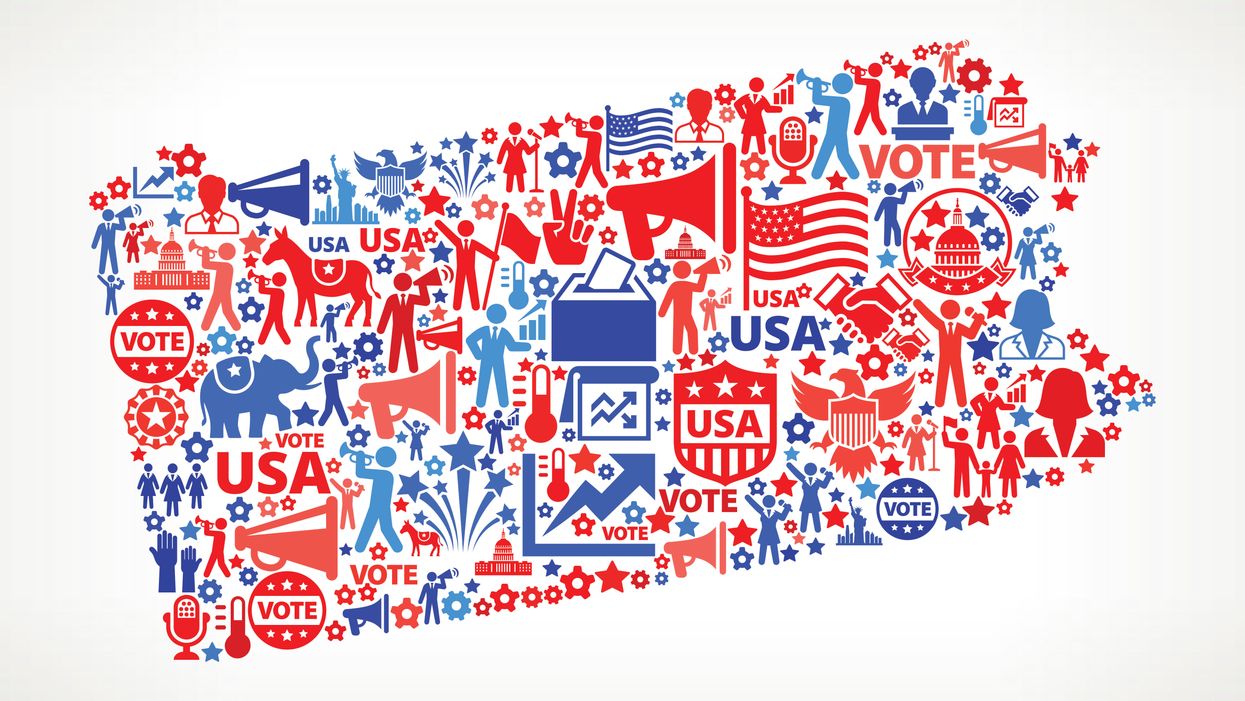Two prominent voting rights groups are attempting to formally intervene so they can fight a Pennsylvania lawsuit that threatens thousands of names on the voter rolls in that marquee battleground state.
The suit filed two weeks ago by Judicial Watch, a conservative advocacy group, maintains the state and three bellwether counties are not following federal law requiring regular maintenance to cull registration rosters of people who have moved, died or are no longer eligible to vote for some other reason.
It is the latest skirmish over voter rolls that could alter the course of the 2020 election. Republicans argue that properly maintaining the lists is not only a federal mandate but also helps prevent election fraud. Democrats generally oppose these efforts, which they say are too often partisan crusades to suppress the vote and end up improperly disenfranchising eligible voters.
The suit claims the three suburban Philadelphia counties — Bucks, Chester and Delaware, with a combined 1.2 million registered voters — are not following the federal cleanup requirements and are refusing to turn over documents describing their maintenance efforts.
On Monday, Common Cause and the League of Women Voters asked a state judge to allow them to become defendants, because their members are among the people whose names might be removed from the rolls. (The current defendants are Democratic Secretary of State Kathy Boockvar and election officials in the three counties.)
The law allows names to be removed from the registration rolls in Pennsylvania using a two-step process. Letters are sent to people thought to be no longer eligible. Those who do not respond can stay on the rolls by voting in one of the next two federal elections, but if they don't their names are dropped — at least until the register anew.
The state's 20 electoral votes will be one of the most hotly contested prizes in the fall. Last time President Trump carried Pennsylvania by 7 tenths of a point, a scant 44,000 votes, breaking a Democratic winning streak for the Democrats that started in 1992.
Polling currently shows former Vice President Joe Biden with a narrow edge in the state, where the result almost always hinges on turnout in Pittsburgh, Philadelphia and their close-in suburbs like the places targeted by Judicial Watch.
Trump's victory was even narrower four years ago in Wisconsin, fewer than 23,000 votes, and it has become the site of the nation's most intense legal fight over the registration rolls — with the fate of more than 200,000 names in the balance.
The dispute is now before the state Supreme Court, which has not decided whether to reconsider a lower appeals court's unanimous ruling in February that the voters should remain on the rolls at least until the state addresses what it has conceded are flaws in its own record-keeping. Most of the disputed names are on the rolls of Democrat-leaning Milwaukee and Madison.




















